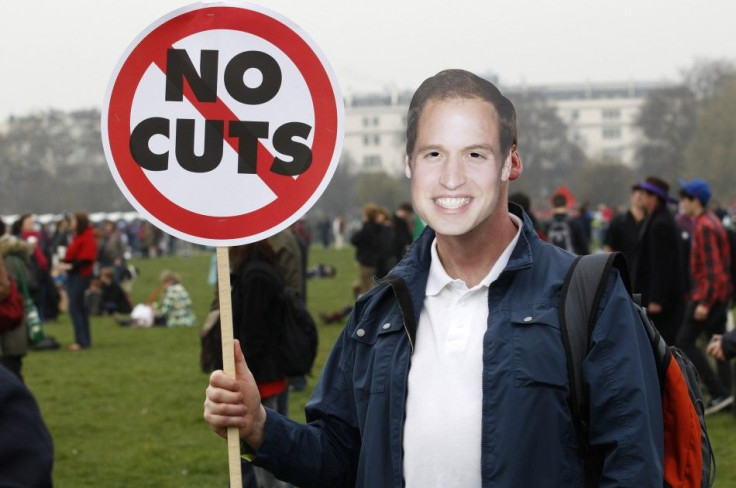Britain Braces For Huge Public Sector Strikes

It appears that public sector unions in Britain will continue with a nationwide strike as planned.
After agreeing to negotiate the public pension dispute, representatives from the unions and the British government met in London today, hoping that the proposed June 30 strike could be avoided through a collaborative effort.
While the talks were a positive step, both sides have very different views of how they went.
Cabinet Office Minister Francis Maude and Chief Secretary to the Treasury Danny Alexander, who are representing the government in the talks, are saying that the two sides have made headway but have not yet reached a decision upon which they could agree.
Both politicians have voiced their negative opinion of the strike, and have continually urged -- occasionally impolitely -- that the unions call off the Day of Action.
We have made some progress - there's lots of progress to be made, Maude said in a BBC interview. The idea that it is remotely appropriate to contemplate strike action while the discussions are going on is simply wrong.
We believe both sides have a responsibility to see the talks through and we would urge public workers not to strike while they are ongoing, the two men said in a press release.
But Public and Commercial Services Union General Secretary Mark Serwotka, who has been active in the negotiations, disagrees.
It was disappointing that the meeting proved to be no different to any of the others - it was a farce, Serwotka commented.
Strike action is a last resort and is never taken lightly. Educators do not like taking strike action... we are unlikely militants, University and College Union general secretary, Sally Hunt told IBTimes, reiterating the significance of the large scale protest.
Union leaders were hoping that negotiations with ministry members would make the strike irrelevant. Regardless of Alexander's threats earlier this month that a strike would lead to harsher budget cuts, the unions were willing to discuss terms and end the walkouts in conference rooms rather than on the streets.
The talks will likely continue, but the unions are skeptical that a solution will be found.
Despite the government's best efforts to wreck them, there are still negotiations happening and we hope that we will see some movement from the government at those talks. If not, we will be out on strike on Thursday 30 June, Hunt said.
The strike is being organized by four large public sector unions: the National Union of Teachers; the Association of Teachers and Lecturers; the University and College Union; and the Public and Commercial Services Union, who says its members are essential to the day-to-day running of the country.
Since the initial announcement of the strike, more unions have pledged their support, including the Trade Union Congress, which has 58 affiliated unions and 6.2 million members, and Unison, a public sector union with 1.3 million members. Unison has created a 30-million pound fund to pay for action in the fall.
The British coalition government announced large-scale public sector budget cuts last fall, and has continued to push their financial agenda despite widespread unrest.
The most recent argument is over the UK public pension system -- British finance officials are attempting to raise 2.8 billion pounds ($4.5 billion) by increasing workers' mandatory pension contribution.
The fundraising is just part of austerity plans to garner 111 billion pounds ($177 billion).
There have already been a number of rallies against these and other deficit-reversing plans, but the June 30 demonstration will be the first 24-hour, national strike.
It is expected that 750,000 workers will strike on June 30, and university students have already pledged to support their professors and faculty at rallies around the country.
Earlier this year, student protests against a tuition hike took a vicious turn. Windows were broken in the British capitol and students and police clashed on the street.
While the unions are planning peaceful demonstrations, there is some speculation that a small minority will cause trouble.
We hope that nothing detracts from our key message about pensions and believe if anything does then that would be utterly counter-productive, a sppkesman for UCU told IBTimes.
© Copyright IBTimes 2024. All rights reserved.





















